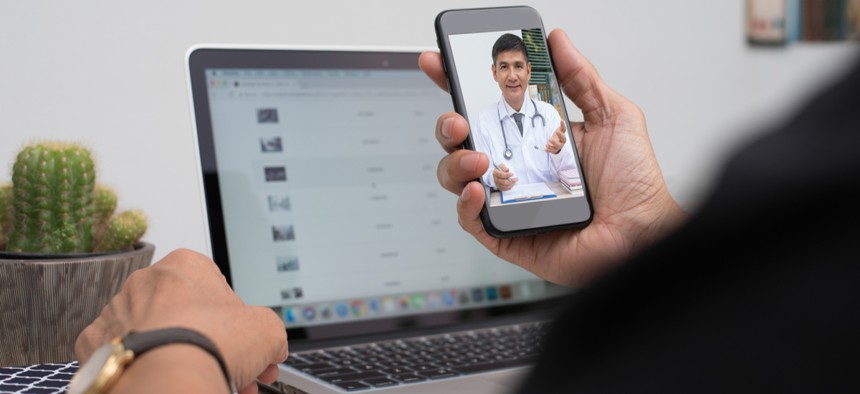Use of VA’s Telehealth, Virtual Mental Health Services Skyrocket

TippaPatt/Shutterstock
VA is adapting new ways to treat patients during the pandemic.
The ongoing coronavirus pandemic and federal guidelines directing the vast majority of Americans to stay home forced the Veterans Affairs Department to change the way it provides medical and mental health services to millions of veterans.
Yet data collected by the agency over the month of March regarding telehealth group therapy, remote mental health services and virtual medical appointments with patients are encouraging, according to VA Secretary Robert Wilkie.
“VA is open for business and we continue to provide same-day mental health services and mental health screening for veterans at risk who require attention at any of our facilities,” Wilkie said in a statement Monday. Wilkie added that he applauded health care workers and veteran patients for embracing various remote technologies.
Wilkie’s statement accompanied the public release of data the agency compiled in three major treatment areas. The largest jump in services were mental health care consultations delivered over the phone. VA handled 154,000 appointments in March, nearly four times the 40,000 appointments conducted in February. In addition, mental health providers completed 34,000 appointments with veterans using VA Video Connect—a web-based application that allows remote face-to-face interactions—70% more than in February.
VA health care providers also doubled the number of telehealth group therapy sessions in March compared to February, handling 2,700 visits. Veteran Affairs practitioners performed 47,000 virtual counseling sessions with veterans in March as well, up 200% from February.
Wilkie said the VA continues performing services for veterans despite an unprecedented crisis that is directly impacting veterans and staff. According to data on VA’s coronavirus website dated April 13, 4,097 veterans have tested positive for COVID-19, including 241 who lost their lives to the virus. Meanwhile, 1,530 Veterans Health Administration staff have tested positive for COVID-19, 9 of whom were killed by the virus.






